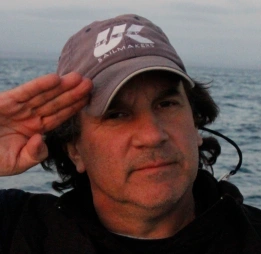

 On February 11, 2011, after massive public protest, Egyptian dictator Hosni Mubarak announced he was relinquishing the power he held over his ancient country for the past three decades. Mubarak’s grudging resignation capped an incredible 18 days of revolutionary reality television – and while it’s far too soon for anyone not wearing an Egyptian military officer’s uniform to predict the form Egypt’s next government will ultimately take, now is the time to marvel at what we’ve witnessed on the streets of Cairo, in the shadow of the Great Pyramids. From one of the cradles of human civilization came another great victory for human civilization.
On February 11, 2011, after massive public protest, Egyptian dictator Hosni Mubarak announced he was relinquishing the power he held over his ancient country for the past three decades. Mubarak’s grudging resignation capped an incredible 18 days of revolutionary reality television – and while it’s far too soon for anyone not wearing an Egyptian military officer’s uniform to predict the form Egypt’s next government will ultimately take, now is the time to marvel at what we’ve witnessed on the streets of Cairo, in the shadow of the Great Pyramids. From one of the cradles of human civilization came another great victory for human civilization.
Indelible images of Molotov cocktail-tossing provocateurs and whip-cracking thugs on camelback notwithstanding, the most important aspect of this spontaneous popular uprising was that it was an essentially peaceful protest. Against all odds, and despite desperate acts of violent provocation by forces loyal to (or paid by) Mubarak’s regime, millions of unarmed Egyptian citizens stood strong in the streets day after day to demand redress of their long-suffered grievances.
 Many of those on the barricades in Cairo’s Tahrir Square echoed the language of American patriots from our own Revolution. “Give me liberty,” I heard one student declare to a listening world on CNN, “Or give me death!” And he meant it every bit as much as Patrick Henry did. We tend to forget that, like the anti-Mubarak protestors we saw chanting and praying on our TV screens, our revolutionary forbears really were risking their lives and fortunes in a bid to free themselves from the yoke of despotism. Unlike King George III, however, Hosni Mubarak either would not – or could not – get his army to mete out the “death” option to his rebellious subjects. (It’ll take a while before we see how the “liberty” option plays out.)
Many of those on the barricades in Cairo’s Tahrir Square echoed the language of American patriots from our own Revolution. “Give me liberty,” I heard one student declare to a listening world on CNN, “Or give me death!” And he meant it every bit as much as Patrick Henry did. We tend to forget that, like the anti-Mubarak protestors we saw chanting and praying on our TV screens, our revolutionary forbears really were risking their lives and fortunes in a bid to free themselves from the yoke of despotism. Unlike King George III, however, Hosni Mubarak either would not – or could not – get his army to mete out the “death” option to his rebellious subjects. (It’ll take a while before we see how the “liberty” option plays out.)
Think about it. The 30-year reign of a powerful dictator who sanctioned the torture of his enemies while looting his country and driving millions of his citizens into economic despair was overthrown by the non-violent mobilization of a resolute citizenry: by people taking to the streets armed with nothing but their resolve to reclaim their national dignity and demand a better future for themselves and for their children. Incredibly, regime change came without guns.
The Power of Social Media
 Egyptian demonstrators used Facebook and Twitter to help organize their massive protests and share news and information in a country whose mainstream media was controlled by the party line lies of Mubarak’s totalitarian regime. It’s shocking to see how little politicians are aware of the power, speed and reach of the Internet and social media – whether it’s an Egyptian despot or a Republican Congressman looking for extra-marital love on Craig’s List. In both cases, ignorance of the scope of electronic media led to inevitable resignations.
Egyptian demonstrators used Facebook and Twitter to help organize their massive protests and share news and information in a country whose mainstream media was controlled by the party line lies of Mubarak’s totalitarian regime. It’s shocking to see how little politicians are aware of the power, speed and reach of the Internet and social media – whether it’s an Egyptian despot or a Republican Congressman looking for extra-marital love on Craig’s List. In both cases, ignorance of the scope of electronic media led to inevitable resignations.
 Though in many ways this epochal event exposed the limits of American power and influence in the Middle East, President Obama and his administration managed to signal a guarded solidarity with the aggrieved Egyptian populace while at the same time cautioning the Egyptian military to stand down and encouraging Mubarak (our hold-your-nose regional ally) to accede to the will of his people.
Though in many ways this epochal event exposed the limits of American power and influence in the Middle East, President Obama and his administration managed to signal a guarded solidarity with the aggrieved Egyptian populace while at the same time cautioning the Egyptian military to stand down and encouraging Mubarak (our hold-your-nose regional ally) to accede to the will of his people.
 A clarion call on behalf of the protestors may have thrilled some less temperate lovers of democracy, but the American President was wise not to be seen as encouraging a foreign population to revolt – especially in a volatile region where autocratic Middle Eastern leaders love to scapegoat foreign interference in their domestic affairs. President Obama was firm but diplomatic. Which is, after all, the way diplomacy works. (Sorry, Fox News, but this was never about Barack Obama anyway.)
A clarion call on behalf of the protestors may have thrilled some less temperate lovers of democracy, but the American President was wise not to be seen as encouraging a foreign population to revolt – especially in a volatile region where autocratic Middle Eastern leaders love to scapegoat foreign interference in their domestic affairs. President Obama was firm but diplomatic. Which is, after all, the way diplomacy works. (Sorry, Fox News, but this was never about Barack Obama anyway.)
 Unemployment had a lot to do with this Egyptian revolution. One thing is certain: a person without a job – and without the prospect of a job – has both a reason to march in the streets and the time to march in the streets! I can only hope that the outsourcing, shortsighted, anti-American corporate toadies at the U.S. Chamber of Commerce have been paying attention to what has happened in Egypt the past few weeks. You can send all of our manufacturing jobs overseas, you can have all of our service calls routed through Bangalore and New Delhi – but when 20% of the U.S. population is out of work: beware.
Unemployment had a lot to do with this Egyptian revolution. One thing is certain: a person without a job – and without the prospect of a job – has both a reason to march in the streets and the time to march in the streets! I can only hope that the outsourcing, shortsighted, anti-American corporate toadies at the U.S. Chamber of Commerce have been paying attention to what has happened in Egypt the past few weeks. You can send all of our manufacturing jobs overseas, you can have all of our service calls routed through Bangalore and New Delhi – but when 20% of the U.S. population is out of work: beware.
 When a future generation of dispossessed and disenfranchised Americans comes out into the streets to demand that their corporate overlords listen to their grievances and share the wealth, will the U.S. military – our all-volunteer force – turn their guns on their fathers, uncles, brothers, high school buddies, mothers and sisters? Egypt’s army did not. I can’t imagine that the U.S. Army would either. (Maybe that’s why Bush and Cheney were so busy funding and training Blackwater, now Xe Services LLC?)
When a future generation of dispossessed and disenfranchised Americans comes out into the streets to demand that their corporate overlords listen to their grievances and share the wealth, will the U.S. military – our all-volunteer force – turn their guns on their fathers, uncles, brothers, high school buddies, mothers and sisters? Egypt’s army did not. I can’t imagine that the U.S. Army would either. (Maybe that’s why Bush and Cheney were so busy funding and training Blackwater, now Xe Services LLC?)
 But I digress. Let’s get back to the historic events in Egypt. And let’s celebrate this display of human courage and dignity. We don’t know what the future will hold for Egypt. Will their next government roll rightward toward religious zealotry and anti-Semitism? Or will it become a liberal lantern that lights the way to true freedom in the region? That’s for Egyptians to decide.
But I digress. Let’s get back to the historic events in Egypt. And let’s celebrate this display of human courage and dignity. We don’t know what the future will hold for Egypt. Will their next government roll rightward toward religious zealotry and anti-Semitism? Or will it become a liberal lantern that lights the way to true freedom in the region? That’s for Egyptians to decide.
The opportunity to make another giant leap for human civilization is within Egypt’s grasp. Chances to fundamentally advance humanity come along very few times in a millennia. Or two. Or three. Or four…










A thrill to see protestor’s signs: “YES WE CAN”
A great column.
Thank you, Paul, for your measured and rational response to the uprising in Egypt. Far too many people (including the president) have portrayed democracy as the end point of such a revolt, but as you point out, in the U.S. we still have a great deal of work to do to bring true justice and a measure of equity to the people. Justice, fairness, reasonable distribution of wealth and resources, universal access to food, clothing, shelter, and health care must be our goals. Here’s hoping that an Egyptian democracy, if one indeed emerges from this, keeps its eye on the real prize they have within their grasp.
Love it, Paul, well done. The Military restraint has been the most remarkable thing — other than the revolution itself. A big difference between Egypt and say Iraq, Syria, Jordan and Lebanon, is that Egypt is a “real” country — it wasn’t drawn up by T.E Lawrence and Winston Churchill. The West’s track record for intervention in the Middle East is a sad one — our invasions (corporate and military) have been horrible failures every time. Have you been following Glenn Beck’s take on this? It has to be heard to believed.
Is it possible to follow Glenn Beck’s take on this? Actually, James Rainey in the Saturday L.A. Times took crazy Glenn down for his fear-mongering, radical Islam-domino-falling rants.
Here’s Rainey’s take on Beck..
http://www.latimes.com/entertainment/news/la-et-onthemedia-20110212,0,7125172.column